Photographs: Adnan Abidi/Reuters Andy Mukherjee
Replacing a plethora of cascading indirect taxes with a single levy can lift long-term economic growth and lower prices, observes Andy Mukherjee.
The key to this year's Indian election lies with young voters.
What they would like to see in party manifestos and 'vision documents' aren't empty slogans and hollow promises, but an outline of policies and programmes that will end the country's pervasive economic gloom and provide real opportunities.
But what kind of agenda should politicians hawk to an electorate, about a sixth of whom -- 120 million people -- will be voting for the first time? Patience with faux socialism is wearing thin. Extreme right-wing ideas, such as a think tank's proposal to abolish income taxes, aren't likely to fly either.
Here are some more practical suggestions for what to include in a reformist manifesto.
. . .
8 reforms political parties should talk about in 2014
Image: Narendra Modi, prime ministerial candidate for Bharatiya Janata Party and Gujarat's chief minister, waves towards his supporters.Photographs: Amit Dave/Reuters
Fix lawmaking
Voters are horrified by the callousness with which Parliament discharges its function nowadays.
The number of Bills passed annually has fallen by half from the early 1950s.
While the quality of legislators will take time to improve, setting up a legal secretariat could boost Parliament's effectiveness in the interim.
It could be put together by scrapping the Planning Commission, a relic of socialism, and by redeploying its staff to aid lawmakers' committees.
The result: better laws, more quickly crafted.
. . .
8 reforms political parties should talk about in 2014
Image: A woman casts her vote inside a polling booth during the state assembly election in the old quarters of Delhi December 4, 2013.Photographs: Ahmad Masood/Reuters
Improve fiscal oversight
Political parties need to arrest the expansion of the welfare state in recent years.
The public must hold the government of the day accountable for the long-term fiscal impact of its tax and spending decisions.
One way to do this is to allow Parliament's existing public accounts committee to play a larger role.
Apart from ensuring probity in the day-to-day use of public funds, the panel will also start making unbiased, long-term projections about deficits and debt. Greater public scrutiny will force governments to keep debt on a sustainable path.
Introduce a goods and services tax
Replacing a plethora of cascading indirect taxes with a single levy can lift long-term economic growth and lower prices.
Political wrangling has delayed the introduction of the goods and services tax. Some state governments want to keep items like petroleum products and alcohol out of the tax so they can continue to levy high duties.
But unless the GST is simple and unified, it won't be of much use.
Politicians -- particularly Narendra Modi, the Bharatiya Janata Party's prime ministerial candidate - should clarify their position on this important reform.
. . .
8 reforms political parties should talk about in 2014
Image: Dancers perform during celebrations outside the headquarters of Bharatiya Janata Party in New Delhi December 8, 2013.Photographs: Ahmad Massod/Reuters
Boost coal production
Voters want uninterrupted electricity, but power plants cannot lay their hands on coal.
State-controlled producer Coal India, which was recently fined $290 million (or Rs 1,770 crore) by the country's Competition Commission for abuse of its dominant position, is the culprit.
It's time to break up the company, which has a market capitalisation of $28 billion, into smaller units.
The state could then sell its controlling stake in those companies.
After supervision of the mining industry passes to a new regulator, the 'Baby Coals' will have to compete with global rivals for mining leases.
If the regulator does its job, greater competition will benefit all power consumers. Investment in electricity production will zoom.
Turn Indian Railways into a proper company
The idea has been dormant for more than a decade.
It's easy to see why.
The country's largest employer has 1.3 million workers.
The older ones have cushy, defined-benefit pensions, like their counterparts in the civil service. But putting more than a sixth of the Railways' revenue from tickets and freight into a retirement fund squeezes investment.
And that's dragging down the competitiveness of the nation's transport infrastructure.
Now that the government is inviting foreign investment in parts of the network -- in suburban projects, and in lines that connect to ports, mines and power stations -- it's time to turn the loss-making Railways into one or more companies to reduce meddling by bureaucrats and politicians and improve efficiency.
The government could compensate those companies to make sure that the poor still travel cheap.
. . .
8 reforms political parties should talk about in 2014
Image: Chief of Congress party Sonia Gandhi walks to greet her supporters after she addressed a rally.Photographs: Amit Dave/Reuters
Privatise state-run companies and merge state-controlled banks
The likes of Air India are a drain on limited public resources. After a 10-year hiatus, the federal government needs to restart the programme of selling controlling stakes in these companies to strategic investors.
Similarly, it's time to end the dominance of state-controlled banks. For now, the goal should be to merge the 26 lenders into, say, 10 better-managed ones.
While the government will still have to pony up the billions of dollars in fresh capital these banks will need to write off their bad loans, taxpayers have a right to demand a change in their lax lending culture.
Make health insurance mandatory
India's health care needs to improve. Indonesia recently implemented an Obamacare-style law that will give everyone compulsory basic health insurance by 2019.
India doesn't have mandatory coverage, except for federal government employees and low-paid industrial workers. A big chunk of the population has no insurance.
Hospitalisation is the main reason why even working people fall into a poverty trap.
Mandatory health insurance will help to break this nexus, provided a regulator can enforce service standards, and fix costs and fees to ensure taxpayers' money is spent well.
8 reforms political parties should talk about in 2014
Image: Women line up in a queue outside a polling booth to cast their vote during the state assembly election in Birchiwayas village in Ajmer district, Rajasthan, December 1, 2013.Photographs: Reuters
Provide old-age security
Preventing poverty among the elderly should be a priority before society ages.
What's missing from the Indian pension system is a minimum guaranteed payout funded entirely by fiscal resources.
A recent working paper by the Indian Institute of Management, Bengaluru, estimates that if the economy grows an average four per cent a year, the annual fiscal cost of a decent, universal pension in 2050 may be about three per cent of gross domestic product.
That isn't exactly loose change, and India's current fiscal situation is perilous. Besides, the state still needs to invest heavily in schools, hospitals and other infrastructure.
So it's only sensible to add new entitlements gradually, as the economy improves.
Nevertheless, political parties must use their manifestos to strike a balance between encouraging risk-taking and wealth creation and addressing challenges of poverty, inequality and social justice.
Not with slogans, but with policies that can touch a chord with the country's growing band of young voters.
Andy Mukherjee is the Asia economics columnist at Reuters Breakingviews in Singapore. These views are his own

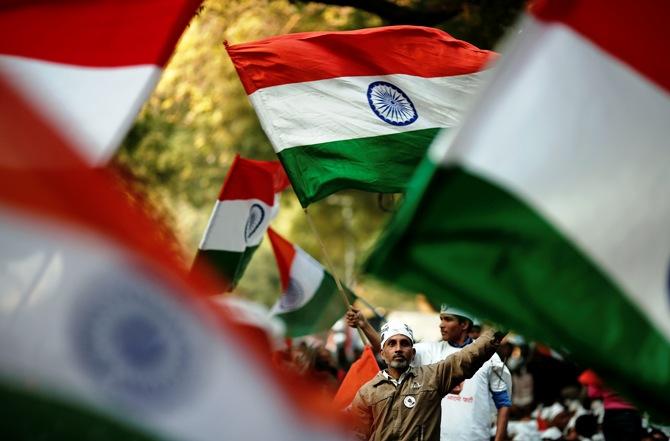
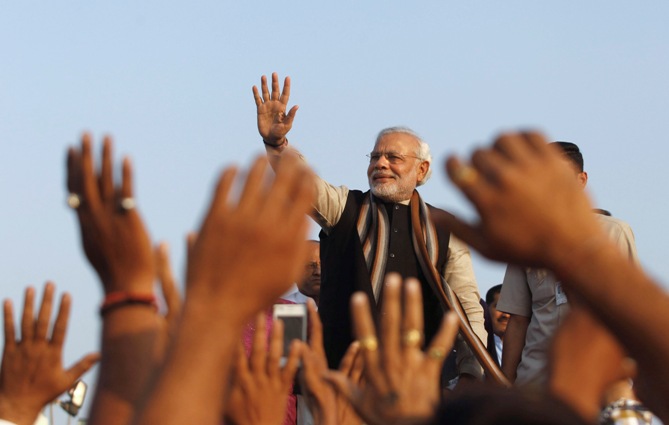
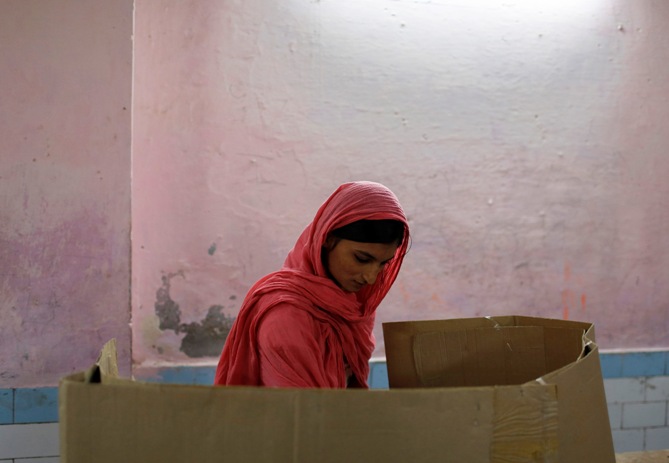
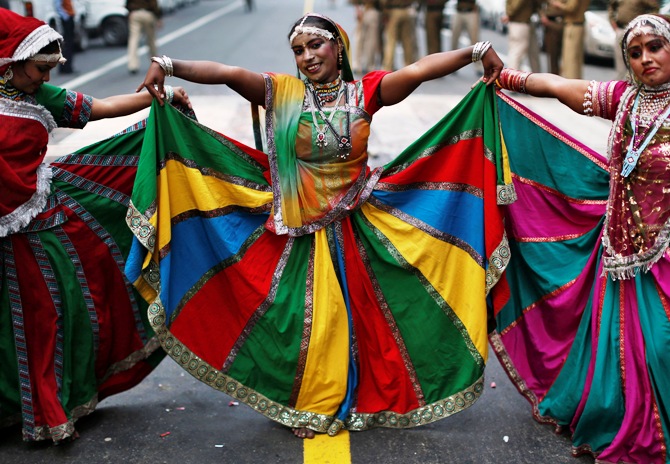
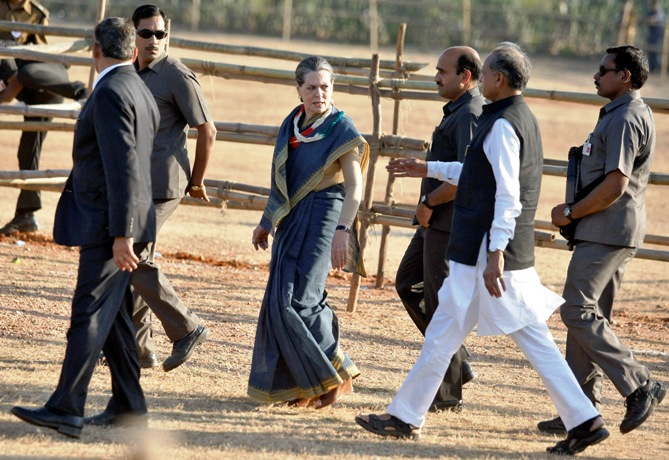
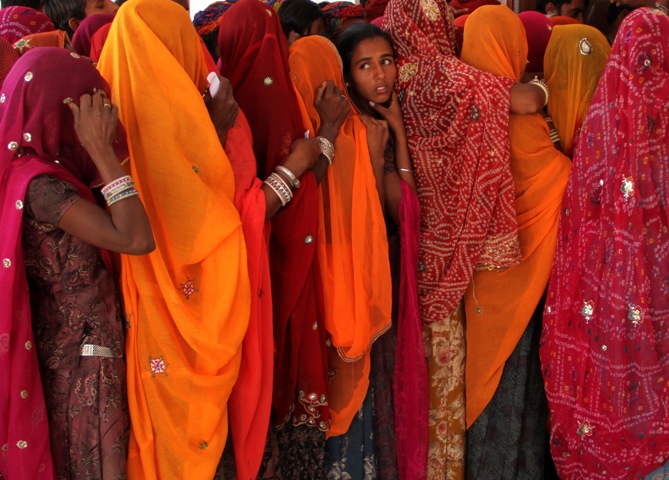

article